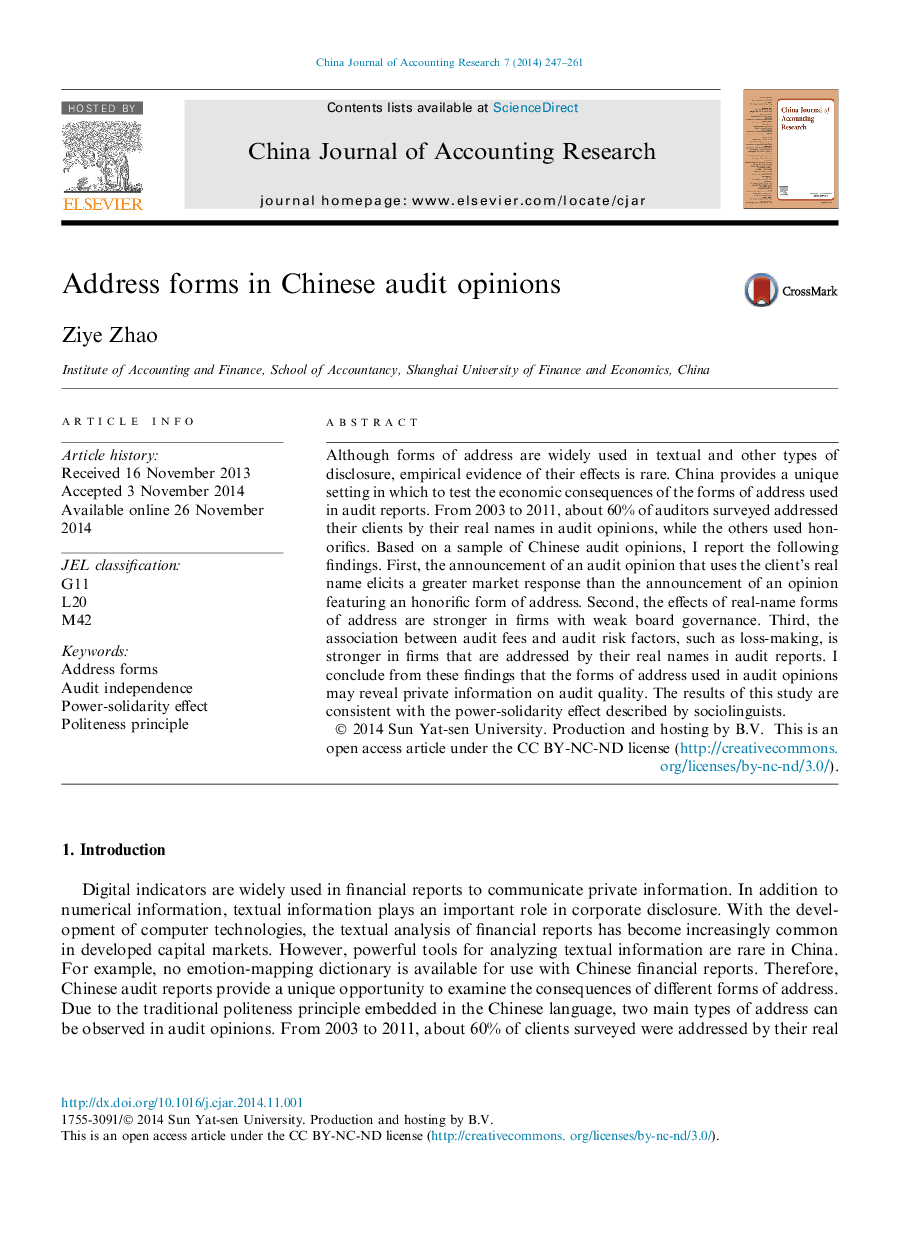| Article ID | Journal | Published Year | Pages | File Type |
|---|---|---|---|---|
| 1004364 | China Journal of Accounting Research | 2014 | 15 Pages |
Although forms of address are widely used in textual and other types of disclosure, empirical evidence of their effects is rare. China provides a unique setting in which to test the economic consequences of the forms of address used in audit reports. From 2003 to 2011, about 60% of auditors surveyed addressed their clients by their real names in audit opinions, while the others used honorifics. Based on a sample of Chinese audit opinions, I report the following findings. First, the announcement of an audit opinion that uses the client’s real name elicits a greater market response than the announcement of an opinion featuring an honorific form of address. Second, the effects of real-name forms of address are stronger in firms with weak board governance. Third, the association between audit fees and audit risk factors, such as loss-making, is stronger in firms that are addressed by their real names in audit reports. I conclude from these findings that the forms of address used in audit opinions may reveal private information on audit quality. The results of this study are consistent with the power-solidarity effect described by sociolinguists.
